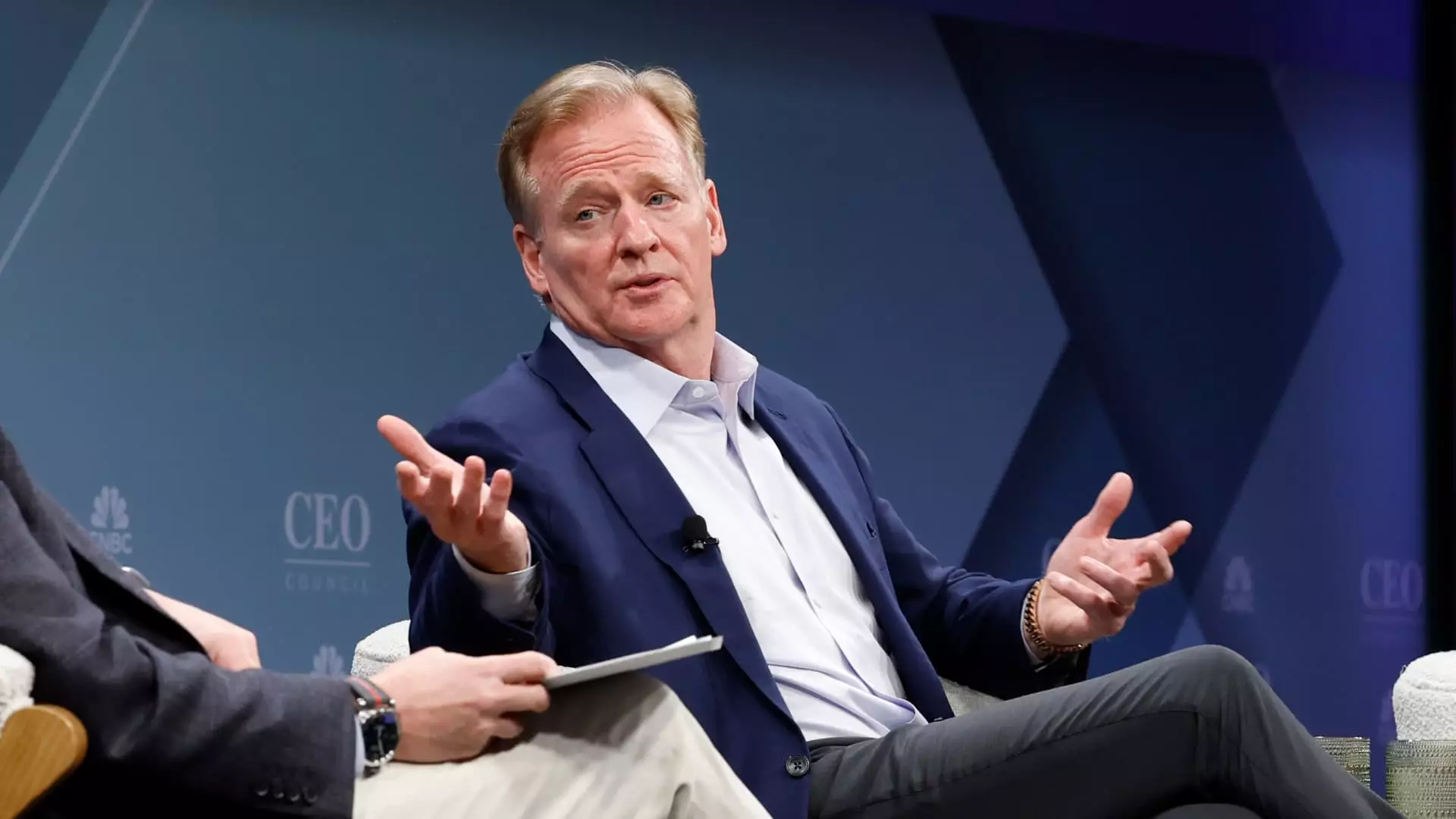When Commissioner Roger Goodell announced the potential for the NFL to expand its international footprint with the prospect of playing as many as 16 regular-season games abroad within the next five years, it felt like both a thrilling vision and a stark warning for the league. The NFL has long reveled in its domestic dominance, with a loyal fanbase that exceeds 200 million. However, as international markets present themselves as open opportunities, it raises the question: Are we truly ready, or is this a gamble that could dilute the essence of the sport?
Goodell’s optimistic proclamation came at the CNBC CEO Council Summit, gripping audiences with promises of more games in countries like Brazil, Germany, Ireland, and Spain—an exciting prospect for international fans. Yet, one must wonder if this frantic rush for global expansion is missing a crucial element: understanding local cultures and sports philosophies. Each country has its own sporting ecosystem, and the NFL’s ability to seamlessly plug into this vast diversity is questionable at best.
A Growing Global Market or a Mistimed Venture?
In a world where sports travel is a colossal industry, representing over $50 billion annually, the potential for the NFL appears almost untapped. Goodell and Marriott’s CEO Anthony Capuano reveal that sports-related tourism contributes a remarkable ten percent to global travel—a statistic that could lure any business executive or team owner. Yet, pushing for an aggressive expansion strategy attracts risks that extend beyond just logistics. International games are not merely about selling tickets; they require an understanding of local fan engagement, marketing nuances, and infrastructure development—an understanding that the NFL may still be scrambling to establish.
While the prospect of bolstering the league’s revenue is undeniably appealing, the question remains—will international audiences resonate with American football in the same way they do with their local sports? Or will an influx of international games alienate hardcore fans within a saturation-centric strategy? What happens when the fans who built the NFL find themselves overshadowed by a global marketplace that might not grasp the sport’s core values?
The Role of Private Equity Investments
In parallel to this global push, Goodell’s acknowledgment of the NFL’s embrace of private equity investments signals a significant shift in the league’s financial landscape. Historically cautious about external investments, the NFL has opened its doors to a select group of private equity firms, almost as if it is appeasing an inevitable evolution in sports business. This measure has risen in importance as teams navigate through fluctuating valuations, providing necessary liquidity in a dynamic economic landscape.
Yet, this newfound sheen bears its drawbacks. Are we, as stewards of the sport, sacrificing the integrity of our beloved franchises in exchange for short-term financial gains? The rising team valuations, currently averaging $6.49 billion, seem astonishing; however, one must ask if these numbers reflect genuine growth or an inflationary bubble poised to burst. Goodell himself has admitted surprise at the speed of these evaluations but remains detached from their implications. As teams like the San Francisco 49ers strike monumental deals, it feels necessary to pause and consider what the future of franchise ownership might look like—more playbooks and spreadsheets, or less passion for the sport?
Economy and Consumer Sentiment: A Footballing Paradox
In light of a broader economic landscape plagued by stubborn inflation, declining consumer sentiment, and rising tariffs, Goodell’s confidence that the NFL’s popularity will remain unwavering seems almost naive. He claims that “there’s still great demand for our content,” but is this assertion rooted in empirical data or merely optimism? It’s hard to ignore the reality that consumer engagement is in constant flux, revealing a disparity between the league’s unwavering self-assurance and the palpable challenges that loom over its financial horizon.
While the NFL enjoys a unique position in the sports hierarchy, the culture surrounding American football thrives on fans who deeply appreciate tradition and authenticity. An aggressive international expansion strategy might sacrifice some of these elements, creating a landscape that prioritizes profit over passion.
In this era of rapid change, navigating the delicate balance between domestic loyalty and global ambition will be essential for the NFL. As the league looks outward, it must ensure that its foundation remains strong at home, lest it deals a blow to the passionate fanbase that has been its lifeline for generations.

